- Home
- Angela Huth
Such Visitors Page 7
Such Visitors Read online
Page 7
But no sound came from his throat. He heard the cheering behind him, muttered some kind of prayer. Lola increased her lead with a leap of triumph. Behind her, Rose let out a terrible cry.
Then Lola fell. Her body flung out on the ground like a length of pale material let down by the wind. Rose, unable to stop, flashed past her and over the winning ribbon.
Gerald saw the crowd rush towards Lola before he was able to move. He was aware that Rose sat on the ground some yards behind him, shoulders heaving, moaning slightly, head bowed into crossed arms. Rose the winner.
Ignoring her, Gerald moved up the slope towards Lola. Someone was running towards a parked car, face serious.
The crowd made way for Gerald.
‘She fell over a bloody stone.’
‘Someone should have checked the slope was clear.’
Lola lay head down, face turned to one side. Eyes shut. Deadly pale. Mud streaking down the whiteness of her. Beautiful hair tangled with sweat. A small trickle of blood, to match the winning post ribbon, trickling from her temple.
‘Unconscious.’
‘Probably something broken.’
‘Someone’s gone for an ambulance.’
‘Bloody good sports, both of them.’
Gerald, on the ground beside her, laid his hand over her warm temple. He listened to the voices, said nothing.
‘How is she?’
He looked up to see Rose on the ground beside him. Rose, warm and smelling of sweat and mud and life. Tears running silently from her eyes.
‘Who knows?’ said Gerald, and turned his attention back to Lola.
The ambulance came. It had difficulty negotiating the steep slope. Two men with impenetrable faces and red blankets lifted Lola gently on to a stretcher. Gerald wanted to ask if she was alive – he had not dared put his hand on her heart. He said nothing.
One of Lola’s arms trailed down the side of the stretcher, unconscious fingers feeling the ground whose frosty sparkle had melted. The ambulance left, its tyres cutting deeply into the mud.
‘Quick,’ said Gerald.
He took Rose’s hand, familiar and warm, in his, and hurried her to his car before the spectators could begin to question. They followed the ambulance to the hospital in silence. Passing The Bear, he could not help wondering what would now happen to the lunch he had ordered for the three of them. He recognised the weakness. Always, in a crisis, his mind flew unbidden to trivial matters as if for protection from the gravity of real circumstances.
In the Casualty waiting-room, beside Rose on a plastic chair, he noticed the pinkness of her skin had gone. She was pale. Trembling. He felt in his pocket for his flask of brandy. They both took large gulps, both managed small smiles.
‘Here’s to the winner, then,’ said Gerald, roughly patting her muddy knee. ‘It was a magnificent race … a lot of fun. As for Lola …’
‘She’ll be all right,’ said Rose. ‘Honestly. I know Lola. She’s had plenty of falls in her time.’
Lola never regained consciousness. She died from an internal haemorrhage two days later. Some months after her death, Rose and Gerald were married: a very minor ceremony, little celebration. To begin with, events did not impair Rose’s love for her husband, though after marriage he became in many ways a stranger. It was as if he was haunted constantly by the thought of Lola – which, of course, Rose understood. It was a feeling shared. But after a year or so, Rose’s patience with her husband’s melancholy broodings began to fade, and regret at having won the race consumed her life. She imagined what might have been: Lola the happy wife, herself the brave and – eventually – contented friend. She stared at what was: life with a trophy she had thought she wanted – a balding, querulous man, old before his time, his charm quite flown. As she walked with him through the graveyard of stiff white stones Rose knew that he was empty of all thought of her, and only Lola, long bones in her grave, was alive in his mind.
Donkey Business
The first day of the season, the donkeys were always hesitant. Ears pricked high, remembering the way, they walked close to the pavement, re-accustoming themselves to the sound of the traffic. Their nervousness would be gone within the week. For the moment, Jo, at the back of the line with his ash stick, encouraged them.
‘Along there, Pat! Lulu, Oliver, Fancy, Skip. As for you, young Hasty!’
He brought the stick lightly down on Hasty’s grey haunches. She was a good-tempered beast, but slow. Nothing could hurry her, or excite her. A bit like Jo’s mother, in many ways, and Jo, who was a patient man, was fond of them both.
The only one to whom Jo gave no commands was Storm. A small, brown donkey, Storm was a natural leader: an animal of exceptional intelligence. As Jo often said, Storm could think. His instincts were always right. There was that time a silly woman insisted her screaming infant should have a ride. She put him on Storm’s saddle. The child sobbed. Storm refused to budge. He listened unmoving to the noise for a while, then lay down on the sand. The child was able to dismount, and ran away gratefully. Jo would never forget that occasion. It was one of the many times Storm had shown wisdom and kindness.
He led the way, now, down the concrete slope to the sands. There, hooves sinking into the soft stuff for the first time in six months, he gave a small bray of pleasure, and broke into a trot. The others followed, eagerly. Jo ran behind them, the wind keen about his ears. When they reached the hard sand, washed by an early tide, the donkeys’ hooves made a gentle puttering sound that Jo often remembered, but could never quite recapture, during the long winter months that he spent in the stables polishing the tack.
At an invisible point on the sand, precisely the right place, Storm came to a halt, turned his body parallel to the sea, and looked towards the far-off cliffs that edged the bay. The other donkeys copied. Unused to the spurt of exercise, their breath came bulbous from their grey muzzles, and they sniffed the raw smells of salt and seaweed in the air. They were all pleased to be back, Jo reckoned. Like him, they felt this was the life, down here on the beach.
Jo tucked his stick under his arm, put his hands in his large duffel pockets. Legs slung apart, he looked about the wide familiar territory of beach, sea, cliff, sky. The tide was far out. It had left a stubble of white foam drying on the ribbed sand. There was a whitish, cloudless sky that made the tracery of shadows very pale between the shallow mouldings of the beach. The coast, Jo liked to think, was gathering together its brighter colours to splash out in the summer months. Meantime, everything was nice and Aprilish – easy on the eyes.
It was too early in the year for anything but the rare customer. The crowds began mid-May, depending on the weather, but Jo didn’t care. He liked it best when he had the beach to himself – just he and the donkeys. Then, he felt, privately, it was all theirs.
Jo had spent much of his thirty-two years on this beach with the donkeys. He knew no other life, desired no other life. His father had come from a long line of distinguished donkey breeders. He had died three years ago from a heart attack, while helping Lulu give birth to a stillborn foal. His mother, the daughter of a Punch and Judy man, had had hopes of being an actress. She settled, instead, for the chance to be Judy to her father’s notorious Punch. From the dusky canvas box beneath the puppets’ stage, she sent up a cacophony of Judy voices that soon became quite famous. Jo’s father, as a young man in the audience, fell in love with the funny, raucous voices. He enticed the real Judy from the tent with the offer of free donkey rides, and married her at seventeen. They never left the northern resort where they met, and from his youngest days Jo remembered views of the bay from a donkey’s back, two pricked ears spiking the huge blue sky.
Now that her husband was dead, Jo’s mother over-worked herself in the small tobacconist’s shop they had bought some years ago, to help pay the increasing bills for donkey food and bedding. For his part, Jo saw to the old stables that his father had built round the yard behind the shop. He spent every winter patching the roof, creosoting the weatherboardin
g, struggling to keep the rot at bay. But in his heart Jo knew that one day he would have to give up, and pull the buildings down. Their state of dilapidation was a great worry. But, away from them, on the beach, he could forget them.
He could forget everything, here, wind blowing a veil of sand on to his boots. It was hard to remember, even, what the skyline of the old town looked like before they built tall concrete hotels between the pretty Edwardian houses, that used to have the Front to themselves. Still, Jo was all for some change. So many people had come to the place last summer, attracted by the new holiday camp, the glassed-in swimming pool and the famous television comedian twice-nightly on the pier, that Jo’s donkeys had made enough money to ease the winter months of no employment. Should be the same again this year. The long-range weather forecast had predicted a fair summer and, no matter what the state of their finances, parents could never resist donkey rides for the children.
Jo’s reflections, practical rather than ambitious, were interrupted by a gentle bray from Storm. Most observant of donkeys, he had seen, before Jo, a figure in the distance. Jo screwed up his eyes. Seemed to be a woman: long skirts under a thick coat. Yes: definitely a woman. A small child walked at her side, holding her hand. Jo felt a fluttering of nervousness, as he always did with his first customer of the year. For she surely was a customer: she was approaching fast, now, eyes determinedly on the row of vacant donkeys.
Soon Jo saw her quite clearly: long hair billowing out to one side in the wind, bony face webbed with faint lines, surprisingly young grey eyes, pinkish cheeks but pale lips. A gypsy, most likely, Jo thought. It was too early for tourists, and local mothers never came down in the mornings.
She came right up to him, rather bold. The child clung to her dark skirts, burying its head in her side.
‘How much?’ she asked.
The question left Jo speechless. He had thought there would be several days in which to determine his rate for the year. He had intended to think about the matter at leisure, fixing on a fair price which, while keeping pace with inflation, would not be so high as to restrict his customers’ enjoyment. But he was blowed if he knew, at this moment, what that price should be. Eventually, fearing that the lady might grow impatient, he said, ‘Off season rates, definitely.’
The lady nodded, smiling slightly, as if she didn’t care at all what the off season rates amounted to. She patted Storm – they always patted Storm first – running a long white hand through the shaggy winter growth of his coat to where, Jo knew, she could feel the warm and softer fur beneath. The hand, curving through Storm’s mane and down his shoulder, put Jo in mind of a fish: it was a graceful thing, somehow: gentle and slithery all at once. Not at all like the normal clumsy pat.
‘You look like a bit of an expert,’ he said.
‘Oh, I’m used to animals, all right,’ she answered. ‘Can we take this one?’
Jo nodded. He knew she was the kind who’d like to lead Storm herself – not that Storm needed any leading. She swung the child on to the saddle with one skilful movement. Jo could see now it was a boy: curly flaxen hair, happy slanting eyes, huge grin.
‘Mind if we just go to the farthest breakwater and back?’
The lady spoke so quietly Jo could hardly hear her words in the wind. ‘Course he didn’t mind. Delighted, he said to himself, to find such early custom. My pleasure, madam, he said to himself, because it would not be in his nature to say any such thing out loud.
It was his pleasure to watch the lady walk away in step with Storm, one hand on the donkey’s neck. She was definitely no gypsy. Not with that voice, that walk. He watched till they were a tiny shape on the horizon. Then they turned. Slowly, they grew bigger, clearer, till they were life-size. The lady’s grey eyes, though sad, looked quite pleased.
‘Thank you,’ she said, ‘we enjoyed that. I’m sorry we’ve been so long. Must have been a good half-hour.’
It had seemed like minutes to Jo, their journey, but he did not disagree. The lady brought out a pile of coins from her pocket. She handed Jo a pound. He stepped back, shocked.
‘It’s nowhere like a pound, especially off season,’ he said.
But she insisted. ‘Go on. You’ve had a long winter, and I’ve got plenty of money – that’s one thing I have got. Please take it.’
Having no idea how to argue with women, Jo took the money. He watched the lady lift her child from Storm’s back. The boy’s smile faded, on the ground, but he made no sound of protest.
‘Goodbye, then,’ said the lady, and, taking her child’s hand, she turned away.
To Jo’s surprise, she came again at the same time next day. The child made straight for Storm, and they went for the same long ride. While they were away, Jo determined to make some conversation on their return. His mother had taught him always to be polite to women and, out here, no one listening, it was easier to put away the shyness that gripped him, stealing his words, that came in crowded indoor places.
So, when they returned, Jo put a hand on Skip’s saddle to steady himself, and said, ‘You come from round these parts, then?’
The lady seemed to hesitate, rubbing at the fur between Storm’s ears.
‘No,’ she said at last. ‘I just have to be here for a while. And you?’ She smiled at him politely.
‘Me? I’m here always. I live here the whole year round.’
The lady swung the child down from the saddle, perhaps no longer interested. Where to go from here? Jo knew she would be off in a moment, if he didn’t think of something.
‘My name’s Jo,’ he said.
‘Mine’s Ida.’ She was feeling in a pocket for the money.
‘I live with my mother above the old tobacconist’s by the church. We sell mostly souvenirs, now, what with the price of cigarettes. Ices in the summer …’ He trailed off, confused by his own rush of words. Then added, ‘… and postcards.’
In the silence that followed, Ida gave him the most beautiful smile Jo had ever witnessed from any human creature, making him oblivious of the boniness of her face, only aware of the pretty puckering of skin round mouth and eyes. Wonderfully unnerved, he kneaded Skip’s mane with his free hand.
‘What you ought to do,’ she said at last, ‘is to have postcards made of the donkeys. Each one separate. Then everyone who rides them would buy one. You’d make a fortune, I bet.’
The brilliance of her idea rendered Jo quite speechless. He stood a full minute in silent wonder at his luck in meeting anyone so inspired.
‘That’s a grand idea,’ he said at last. ‘Thanks.’
Ida shrugged. ‘Oh, I’m always full of ideas. Usually, people don’t do anything about them.’
Then, before Jo could protest, she slipped a pound into his lunch bag on Hasty’s saddle, and hurried off.
Ida and her child came back every day after that: Jo lost count of how many days they came. He began to look forward to seeing her every morning and dreaded the day she might not turn up. But she was always punctual, never put off by rain or a cold wind. Sometimes, Jo would leave the rest of the donkeys and accompany her and the child – her son, David, he learned – as far as the breakwater and back. They didn’t talk much on these occasions: Jo had no wish to appear inquisitive, and Ida was not one to offer up much information of her own accord.
Then one day – it must have been late May – Ida asked him if she could bring David to see the donkeys in their stables. Jo agreed at once, but the idea of her visit put him in a state of some agitation. He had never mentioned Ida to his mother, not knowing quite what to say. Once, he had been about to confide to her that this was the best spring he could ever remember, no particular reason – then he had thought better of the idea, and kept his silence.
Ida and David came to the stables early one evening. Jo’s mother was out, so there was no fear of her discovering the visitors. Away from the wide spaces of the beach, Ida seemed to Jo taller, and nervous. He himself was in much the same state. Having come home early to give the yard a specia
l clean, he was aware he smelled strongly of manure. But Ida did not seem to notice. She went from stall to stall with the child, stroking each donkey’s muzzle, murmuring things Jo could not hear. When they reached Storm, the child flung its arms about the animal’s shoulders.
‘He’s grown very fond of them,’ said Ida.
Jo thought there was sadness in her voice, as if her son’s affection could somehow be destroyed.
‘Still, there’s a while yet. Thank you for letting us come.’
She fetched the child and hurried off, as if fearful of being late for someone or something. When she had gone, the yard seemed empty as it had never been before, and Jo longed for the safety of the next morning on the beach, and all the comfort of their more familiar meetings.
Just a week later, long after dark, Jo was in the stables cleaning bridles by the light of his father’s old oil lamp. He could not hope to improve the shine on the soft, gleaming leather which he polished every day. But it was something to take up the restlesness of his hands: he felt very awake, a little uneasy.
He looked up, saw Ida standing in the door. He had heard no footsteps in the yard. She was by herself, wearing a long grey cloak. With no child at her side, she seemed strangely alone.
‘Sorry to disturb you,’ she said, ‘but we suddenly have to go tomorrow. I wouldn’t have been able to come down to the beach, so I’ve come to say goodbye.’
The reins in Jo’s hands turned to ice. He put down the bridle.
‘Come on in, won’t you?’ he heard himself saying.
‘I can’t stay more than a moment.’
All the same, she moved nearer Jo. The flat light from the lamp illuminated silvery marks of dry salt beneath her eyes, reminding Jo of the crusts of waves left on the beach by a strong tide. So close, Ida smelt like the interior of the warm flower shop on the front where he went on Mothers’ Day. Standing there, she blotted out the stables’ own smells of manure and hay. Jo wanted to put his hand on her arm, just touch her for a moment, more than anything he’d ever wanted in his life.

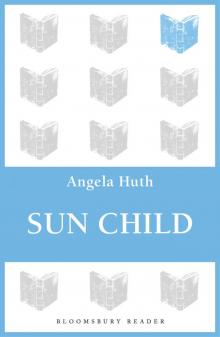 Sun Child
Sun Child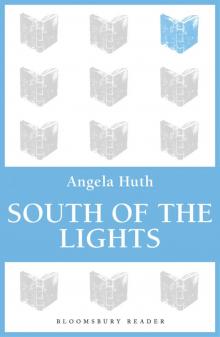 South of the Lights
South of the Lights Virginia Fly is Drowning
Virginia Fly is Drowning Of Love and Slaughter
Of Love and Slaughter Such Visitors
Such Visitors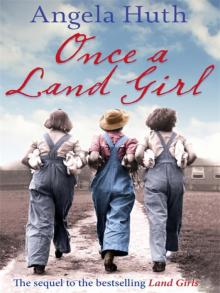 Once a Land Girl
Once a Land Girl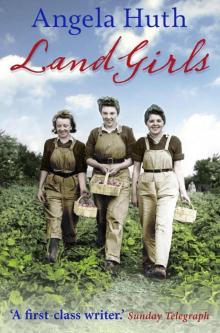 Land Girls
Land Girls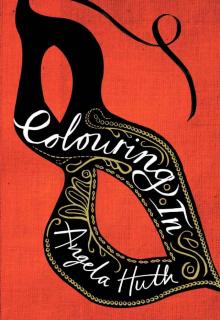 Colouring In
Colouring In Nowhere Girl
Nowhere Girl Monday Lunch in Fairyland and Other Stories
Monday Lunch in Fairyland and Other Stories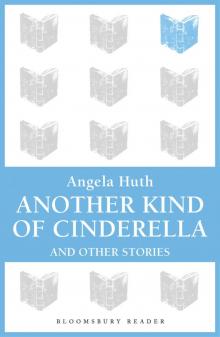 Another Kind of Cinderella and Other Stories
Another Kind of Cinderella and Other Stories Invitation to the Married Life
Invitation to the Married Life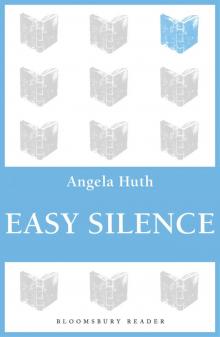 Easy Silence
Easy Silence